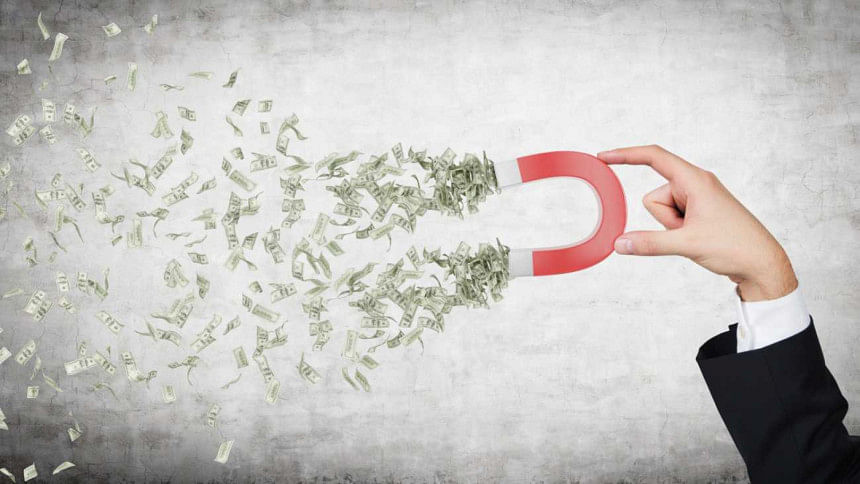Scrounging off public services

On July 23, the RAB, in a surprise swoop on the National Institute of Traumatology and Orthopedic Rehabilitation (NITOR), popularly known as Pongu hospital arrested 18 brokers (dalals) who have been exploiting the patients' desperate need for treatment.
The raid and arrest hogged news headlines and the unearthing of an illicit ring—that included a few women members—was laudable. But to ensure a deterrent effect on the tyranny of the self-styled 'fixers' at the public facilities, much more will be needed. We have to eliminate the root-causes of the malady traced to the mismanagement of medicare facilities. This induces collusive arrangements between vested quarters apt to create an artificial scarcity to extort money from the poor and vulnerable landing at the hospitals.
In the Twitter world the catching of the criminals evoked reactions demanding that wicked men behind the petty operatives be apprehended and the networks be busted.
Take the case of 'wheelchair mafia' allegedly operating at some public hospitals. Patients, which include the elderly, in need of wheelchairs arrive; their attendants look around for a wheel chair and then go on a hunt for it. They may spot the wheelchairs neatly lined up at a corner but withheld from potential users. Unless the latter coughs up a 'toll' they can't get their hands on it. Those in charge of welcoming the patients should have reflexively rolled out the wheelchairs in their direction, have them seated securely and taken them to a designated point; instead they are guilty of a double offence. Not only are they denying the service to care-seekers but also extorting money for it. What are their supervisors doing when employees under their charge create artificial scarcity of patient carriers to make a fast buck?
In a broader spectrum, they fleece the lean pockets of poor patients or their relatives posing/acting as intermediary between the already coerced clients and abetting insiders on a promise of providing certain services. These include helping to jump the queue, fixing appointments and arranging admission, medicine and treatment, a sort of a package deal dangled before bewildered patients.
In the process, many queued-up patients may be thrown off-line and to their utter frustration, may have to go back home.
Overall, this is reflective of two aberrations of the system making it virtually dysfunctional: In the first place it makes a mockery of public hospitals which have been established with the sole purpose of providing treatment free of cost to ailing people. That's why patients from poor, even middle class households rush to such facilities for treatment. Many do arrive there in terminal condition or otherwise requiring emergency treatment maybe with bleeding injuries requiring immediate attention. And if in that dire context, their relatives or attendants get pestered by hangers-on, subjected to mercenary bargaining or have to wait for an arrangement to be struck before any treatment can even start, their misery could only compound, often spinning beyond repair.
The second aberration is more serious, more corrosive in its effect: It bears the portents of eating into the vitals of not just a system but the society at large. Simply stated, the government has spent huge amounts of money to establish public facilities with recurring expenditures to keep them running. But alas! There you have parasitical people like locusts invasively living off the cream of such institutions.
This has a multiplier effect. It creates greed and spreads its tentacles. Even builders of factories or apartments are resigned to the fact that they have to part with some money to the extortionists to ensure trouble-free execution of their projects. The cost of business having increased for the builder, he will mark up the prices of his services. The consumers will suffer in the end.
The ranks of the weak and vulnerable have been growing in Bangladesh as money being made out of thin air plucked by 'you-scratch –my back and I scratch yours' kind of colluding elements thriving on impunity.
It is the same attitude that created stock market bubbles, banking scams, and even globally, the apocalyptic financial meltdown of 2007-8.
One overarching ramification of all this is explained in simple terms: Ill-gotten money without any trace of origin will have evaded taxes or translated into flight of capital to safe havens. In this trend we are emerging as a noticeable player, certainly not our credit!
Unaccounted for money is susceptible to be ill-spent in drug markets, small arms purchases or financing hideous agendas. All this can destabilise a society.
A turn-around requires a Herculean effort. As Gandhi has put it, 'There is enough in the world for human need but not for human greed'. That is a powerful enough message to be heeded now. And, we must be up to the job of containing excessive greed because we are a conscionable nation deserving to see good sense ultimately prevailing in our midst.
Shah Husain Imam is a commentator on current affairs and former Associate Editor, The Daily Star. E-mail: [email protected]





Comments